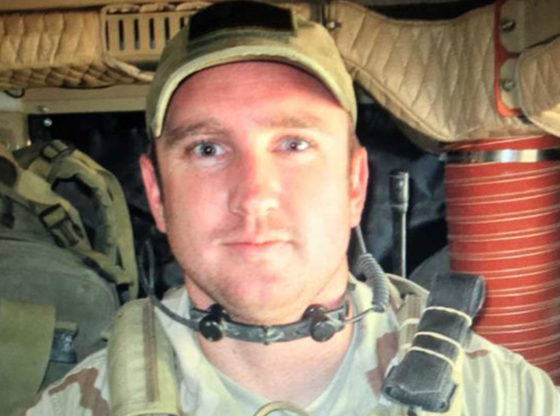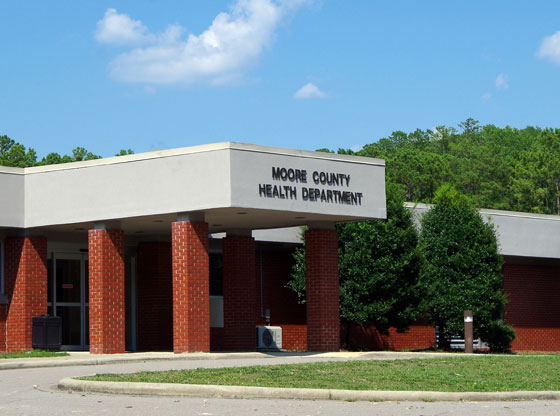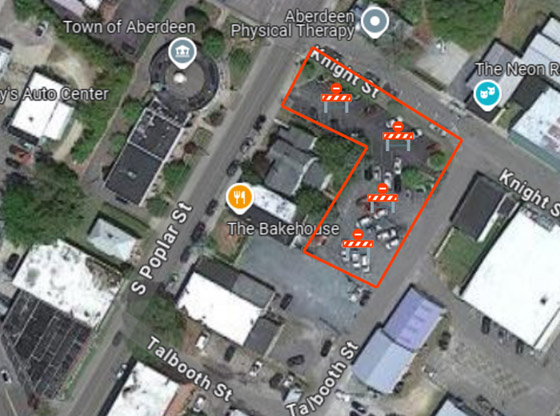Sgt. 1st Class Richard Stayskal, of Pinehurst, may have won his year-long battle for military medical malpractice reform.
The U.S. House passed the bipartisan conference report for the 2020 National Defense Authorization Act (NDAA) which included a provision U.S. Rep. Richard Hudson led to allow service members recourse in Department of Defense medical malpractice.
Earlier this year, Rep. Hudson introduced the Sergeant First Class Richard Stayskal Military Medical Accountability Act of 2019, a bill named after the Pinehurst resident and veteran. Monday’s NDAA includes a provision he helped secure based on this legislation to allow service members to seek compensation for medical malpractice unrelated to their military duties and caused by a Department of Defense health care provider.
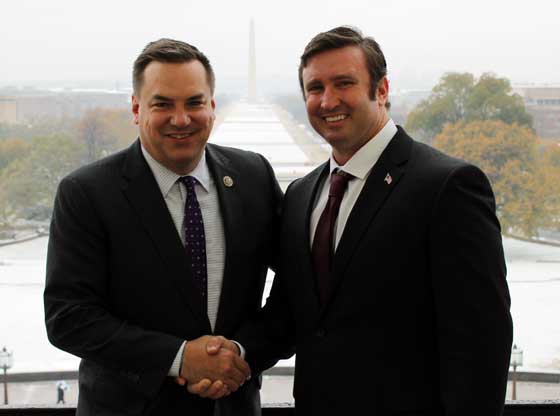
Representative Richard Hudson(left) and Rich Stayskal(right). Photo courtesy of Rep. Hudson’s office.
I’ll continue to look out for our soldiers and their families at Fort Bragg and across the district,” said Rep. Hudson in a Wednesday press release, who represents Moore County and Fort Bragg.
While the NDAA does not fully repeal the Feres Doctrine, it authorizes the Secretary of Defense to allow, settle, and pay an administrative claim against the United States for personal injury or death of a member of the uniformed services that was the result of medical malpractice caused by a Department of Defense health care provider. For the first time since 1950, U.S. military personnel would have legal recourse to seek payment from the military in cases of medical malpractice.
Originally from San Jose, CA, Rich, 38, enlisted in the Marines in 2001. In 2004 while serving in Iraq, he was shot by a sniper, a bullet lodged in his lung. Discharged in 2005, he was awarded a Purple Heart for his service. In 2006, Rich reenlisted in the U.S Army. Despite giving the appearance of looking in perfect health, Rich is currently fighting for his life, living with Stage 4 lung cancer.
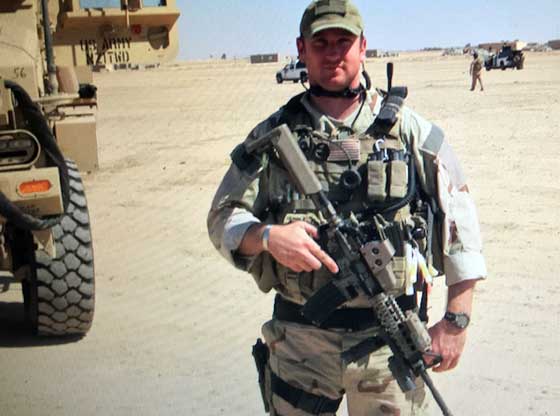
Contributed photo of Rich Stayskal.
In January 2017, Rich underwent a routine CT scan performed as part of a required physical necessary before entering dive school in the Army. After his exam, Rich was cleared by a military doctor at Womack Medical Center, located at Fort Bragg, to enter dive school.
Just a few months later, Rich began to experience physical symptoms which included difficulty breathing and coughing up blood. His attempts to seek medical treatment at Womack were not expedited, and at one point, several months after his initial CT scan was done, Rich was told he had pneumonia.
It wasn’t until June of 2017 that Rich was finally given clearance to see a civilian doctor. After an exam and biopsy, the diagnosis came back for stage 3A lung cancer.

Contributed photo of the Stayskal family.
According to Rich, six months earlier, the military physician who first gave Rich clearance to enter dive school, did not disclose to the Pinehurst resident a sizable mass on his lung that was visible in the routine CT scan Rich underwent in January 2017.
According to the Rich, a mass was noted in his medical record at the time and had grown substantially by the time it was detected by a civilian doctor—six months later.
Rep. Hudson introduced the bipartisan bill with his colleagues Reps. Jackie Speier (D-CA), Jamie Raskin (D-MD), Guy Reschenthaler (R-PA), Ted Lieu (D-CA), Markwayne Mullin (R-OK), and Charlie Crist (D-FL).
“My priority is doing right by my constituent Rich and making sure our service members and their families receive the support and top-notch health care they were promised,” said Rep Hudson in a May press release. “I admire Rich and the Stayskal family’s courage to advocate for these changes.”
The act is expected to pass in the Senate and signed by President Donald Trump by the end of the year.
 ~Written with the help of Sandhills Sentinel Reporter Maggie Sergio.
~Written with the help of Sandhills Sentinel Reporter Maggie Sergio.


